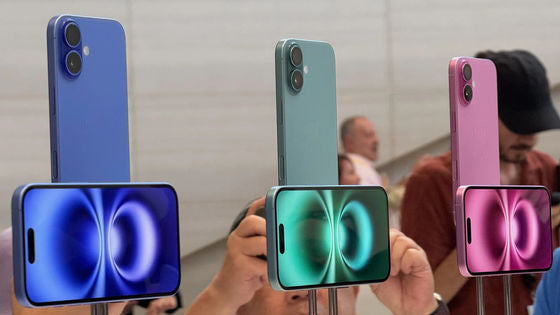Introduction
In recent years, Apple’s iPhone series has consistently led the smartphone market, gaining strong support from consumers worldwide. However, this year’s iPhone 16 series has faced unexpected sluggish sales, with market reactions falling short of expectations. Was this because consumers were unwilling to spend money, or does the issue lie in Apple’s product innovation and marketing? Let’s take a closer look.
Table of Contents
- Introduction
- Weak Innovation Fails to Meet Consumer Expectations
- Delayed AI Integration Misses Market Opportunities
- Declining Product Strength Weakens Apple’s Brand Loyalty
- The Core Issue: Lack of Competitiveness
- Conclusion
Weak Innovation Fails to Meet Consumer Expectations
Technological innovation is a key factor in attracting and retaining consumers. Unfortunately, the iPhone 16 series disappointed in this regard. At its launch event, Apple highlighted improvements such as the A18 processor, a new camera button, and an enhanced cooling system. Yet, these upgrades were incremental refinements rather than revolutionary changes.
In today’s rapidly evolving smartphone industry, consumers expect breakthroughs. For instance, iPhone 14 and 15 users may hardly notice a difference when upgrading to the 16 series, making them less willing to spend hundreds of dollars on a new device.
Meanwhile, other smartphone makers are making bold leaps in innovation—offering major upgrades in cameras, battery life, fast charging, and design year after year. These advancements strongly encourage consumers to upgrade. By comparison, the iPhone 16 series lacks freshness in design, hardware, and functionality, failing to live up to the expectations of consumers seeking genuine technological progress.
Delayed AI Integration Misses Market Opportunities
AI technology is one of the most crucial factors shaping the future of smartphones. Yet, the iPhone 16 series fell short in this area. Although Apple promoted its new “Apple Intelligence” feature, it was not available at launch—users must wait until the following year. This delay left many eager customers disappointed.
As AI develops rapidly, smartphone manufacturers worldwide are heavily investing in AI to strengthen competitiveness. Apple’s delay has significantly weakened its position, particularly in the Chinese market, where AI-enabled smartphones are gaining traction. In contrast, competitors are actively rolling out optimized AI algorithms and features, delivering smarter, more convenient user experiences.
By the time Apple’s AI functions become available, they may no longer feel groundbreaking. In many areas, rival smartphones already provide AI features that consumers find essential, leaving the iPhone 16 series lagging behind.
Declining Product Strength Weakens Apple’s Brand Loyalty
Over a decade ago, owning an Apple device symbolized status, and brand loyalty was extremely strong. But beyond branding, iPhones captivated users with outstanding product power.
Today, that edge has largely faded. Most of what an iPhone offers can now be found on Android devices—sometimes even with better performance. As the sense of exclusivity diminishes, more users are switching to feature-rich, cost-effective alternatives.
The Core Issue: Lack of Competitiveness
Imagine if the iPhone 16 had introduced a true full-screen display, ultra-fast 150W charging, a 10x optical zoom camera, a 50% increase in battery life, and resolved issues like signal reception and overheating. Even without groundbreaking innovation, these features alone—already present in many Android models—could have driven strong sales.
Thus, price is not Apple’s biggest challenge. Consumers have always accepted that Apple products are expensive because they used to lead the market by years. But as Apple’s technological edge fades, its premium pricing feels harder to justify. Over time, this could lead to a gradual erosion of Apple’s market share.
Conclusion
The iPhone 16 series, announced this year, has underperformed due to weak product strength, high pricing, and poor cost-effectiveness. Consumer reactions have been lukewarm at best.
Apple should take this as a lesson: to stand in consumers’ shoes, prioritize user needs, and upgrade its products accordingly. If Apple can improve both product performance and pricing strategies, it may yet win back market share and consumer trust. In today’s highly competitive smartphone industry, enhancing cost-effectiveness and user experience is the key to long-term success.
❤️ If you enjoyed this article, please give it a Like!
💬 Feel free to leave a comment or share your thoughts.
🔔 Follow us to stay updated with the latest iPhone news, deals, and events!

